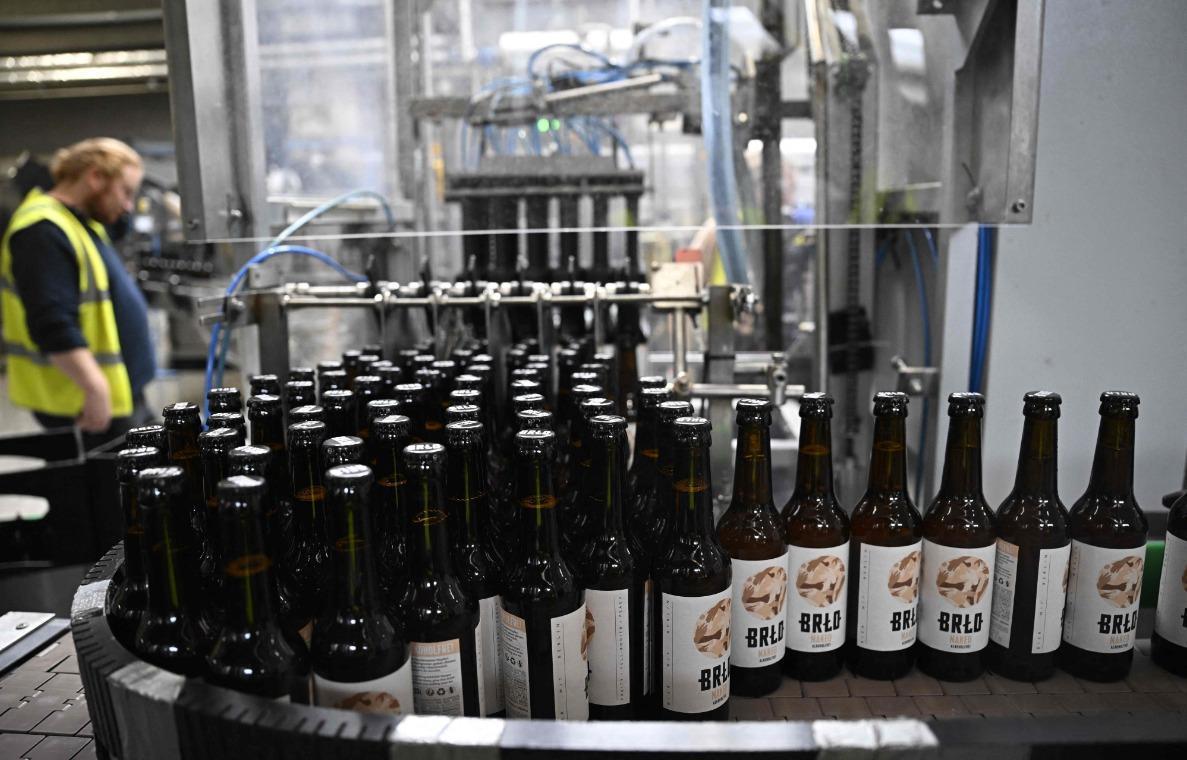
All the fun of the Oktoberfest, without the hangover: Germans are swapping traditional beer for non-alcoholic brews, driven by health concerns and the increasing quality of booze-free options.
Beers containing less than 0.5 percent alcohol - the legal limit to be classed as non-alcoholic - are no longer an uncommon sight in the country's famous beer gardens.
"I like the taste of beer, but I don't find it reasonable to always drink it with alcohol," Kathrin Achatz, 40, told AFP at the BRLO beer garden in Berlin.
According to federal statistics office Destatis, the volume of non-alcoholic beer produced in Germany has almost doubled over the past 10 years, reaching 670 million litres in 2022.
In a 2022 survey by the Allensbach Institute, non-alcoholic beer represented around seven percent of total beer purchases.
"We are seeing a strong increase in demand," said Holger Eichele, head of the German Brewers Federation, which represents the interests of the brewing industry.
BRLO, whose beer garden is located in Berlin's central Kreuzberg district but which produces most of its beer from a brewery further out in Spandau, was an early adopter.
The brewery, which prides itself on producing all its beer in Berlin, launched its "Naked" non-alcoholic range in 2017.
Since then, sales have grown sharply, with a jump of 60 percent in 2022 compared to 2021.
The boom in non-alcoholic beer in Germany has also been partly down to health trends and a growing awareness of the harmful effects of alcohol.
"There is a growing awareness of health imperatives in the population," Eichele said.
"Sometimes you want to have a drink, but you don't want to feel the effects of alcohol," said Max Thomas, a 44-year-old Berlin-based Briton.
Although Germans are among the biggest consumers of alcohol in the world, at 10 litres of pure alcohol per inhabitant per year, consumption is falling, especially among young people.
According to a study by the Federal Centre for Health Education, 8.7 percent of young people aged 12 to 17 drink alcohol at least once a week. In 2011, that figure was around 14 percent, and in 1979 it was 25 percent.
The average German consumed 87.2 litres of beer in 2022, compared with nearly 100 litres in 2013, according to Destatis.
The industry is therefore expecting non-alcoholic beers to continue to grow, with the Brewers Federation predicting they will eventually account for 20 percent of the market.
"It will not completely replace classic beer, but it has enormous potential," Eichele said.